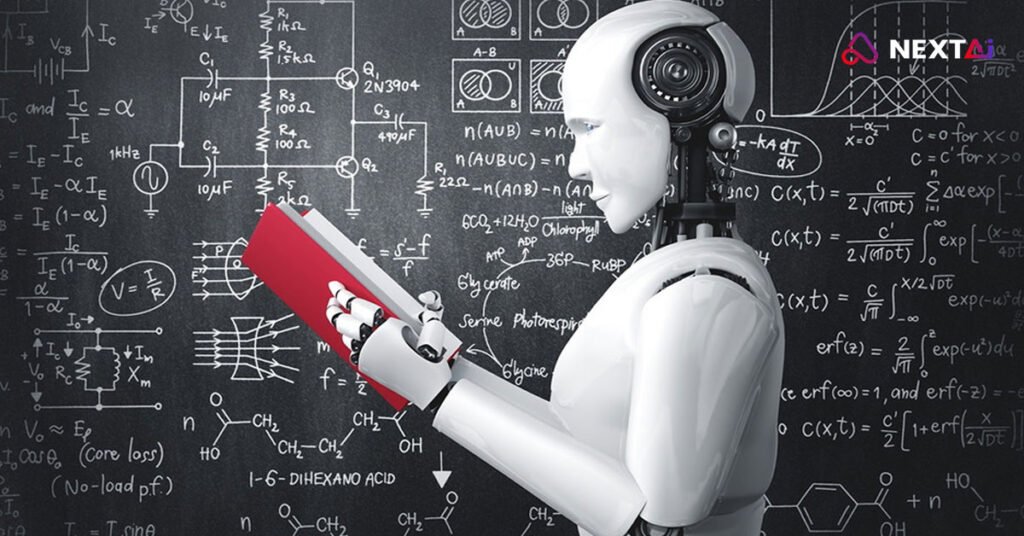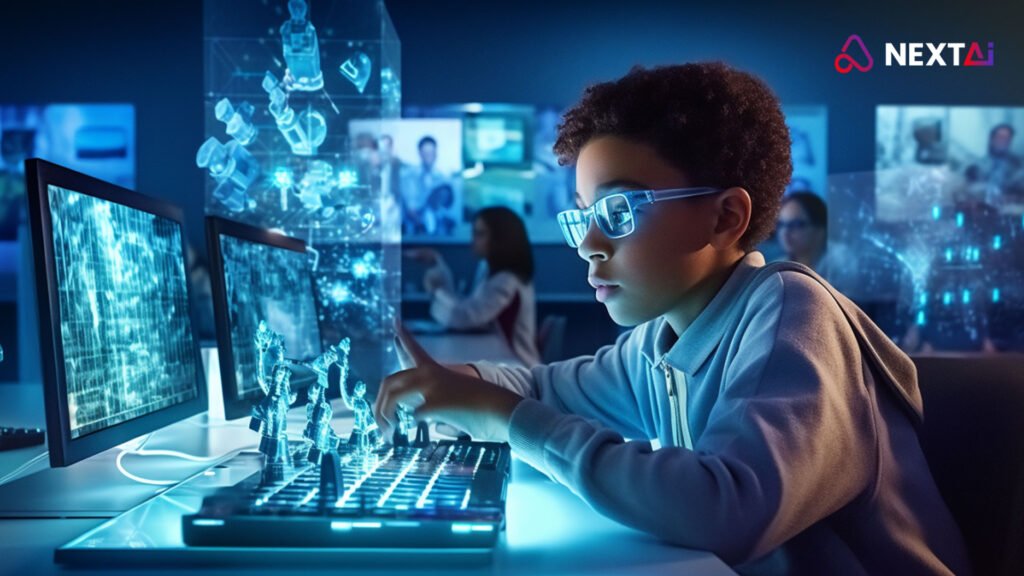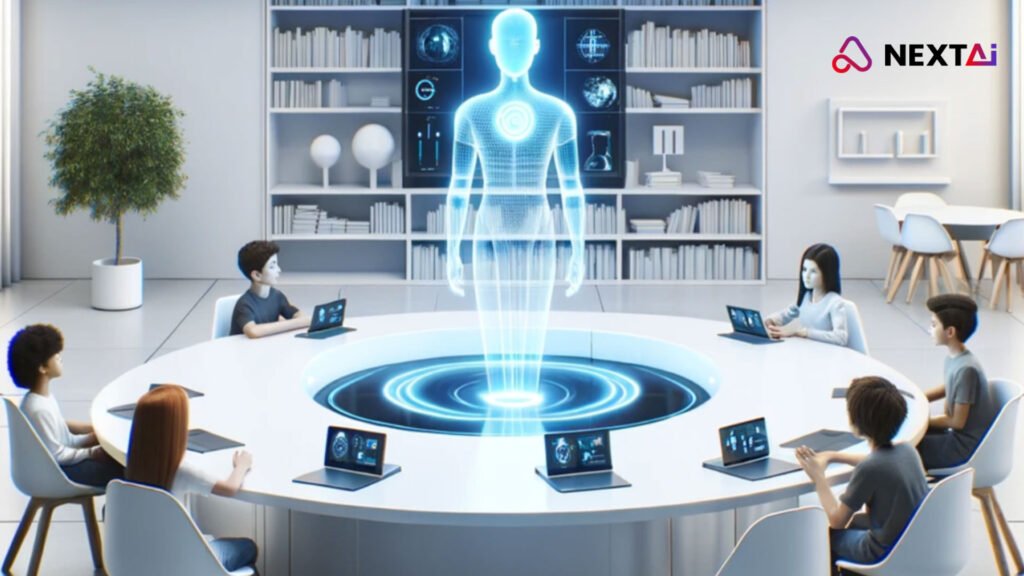
The Role of AI in Personalized Education
By Rajiv Rajkumar Bathija – Visionary with 35 Years of Experience | AI in personalized education
Artificial Intelligence (AI) is redefining the education landscape by offering personalized learning experiences that cater to the unique needs of each student. Traditional education has often relied on a one-size-fits-all approach, but AI-powered adaptive learning systems are changing the game. By understanding individual learning styles, strengths, and weaknesses, AI is making education more tailored, efficient, and accessible. In this blog, we explore how AI is transforming personalized education and the benefits and challenges that come along with it.

How AI is Transforming Personalized Education
AI has the ability to process vast amounts of data, enabling it to create personalized learning pathways for students. Here are some of the ways in which AI is revolutionizing education:
– Adaptive Learning Platforms: AI-powered adaptive learning systems assess a student’s progress in real time and adjust the difficulty level and content based on their needs. This means that students who excel can move ahead at their own pace, while those who need extra help receive targeted support to reinforce concepts.
– Personalized Feedback: Traditional classrooms often struggle to provide individualized feedback due to time constraints. AI systems can offer instant and personalized feedback to students, helping them understand mistakes and learn more effectively. This feedback can be tailored to each student’s preferred learning style, making the learning process more engaging.
– Identifying Learning Gaps: AI can identify areas where students are struggling and suggest additional resources or exercises to help them improve. This targeted support helps bridge learning gaps and ensures that students have a strong understanding of foundational concepts before moving on to more advanced material.
– Content Customization: AI can create customized lesson plans and learning materials based on a student’s progress, preferences, and goals. This allows for a more dynamic learning experience that is aligned with the student’s needs, ensuring that each learner is challenged appropriately.
– Intelligent Tutoring Systems: AI-powered intelligent tutoring systems can provide one-on-one tutoring that is highly personalized. These systems can emulate the experience of working with a human tutor, offering explanations, answering questions, and guiding students through complex topics in a way that suits their learning style.
Benefits of AI in Personalized Education
The use of AI in personalized education offers numerous benefits that enhance the learning experience:
1. Student-Centric Learning
AI empowers students to take control of their learning journey. By offering personalized pathways, students can learn at their own pace, revisit challenging concepts, and focus on areas that interest them. This student-centric approach fosters greater motivation and engagement.
2. Enhanced Accessibility
AI-powered educational tools can provide learning opportunities to students who may not have access to traditional schooling. For example, students in remote or underserved areas can access quality education through online AI platforms, bridging the gap in educational equity.
3. Efficient Learning
By tailoring the learning experience to each student, AI helps make learning more efficient. Students spend less time on material they have already mastered and more time on areas where they need improvement, leading to a more productive learning process.
4. Data-Driven Insights
AI collects and analyzes data on student performance, offering insights to educators that can help them refine their teaching strategies. Teachers can use this data to better understand their students’ needs, identify patterns, and adjust their approach to ensure effective learning.
Challenges of AI in Personalized Education
While AI holds great promise for personalized education, it also presents challenges that must be addressed:
1. Data Privacy and Security
AI-powered systems collect a significant amount of data on students, including their learning habits and personal information. Ensuring the privacy and security of this data is critical, as any breach could compromise sensitive student information.
2. Equity Concerns
Access to AI-driven education tools may not be equally available to all students. Those in low-income or remote areas may face challenges in accessing the technology needed for personalized learning, potentially exacerbating existing educational inequalities.
3. Human Element in Education
AI can provide personalized content and feedback, but it lacks the emotional intelligence and empathy of a human teacher. The teacher-student relationship plays a crucial role in learning, and while AI can enhance education, it should not replace the human connections that are vital to a student’s development.
4. Algorithmic Bias
AI algorithms can be subject to bias if they are trained on biased data. In an educational context, this could mean that certain groups of students are disadvantaged by the way learning pathways are designed. It is essential to ensure that AI systems are built with fairness and inclusivity in mind.
The Future of AI in Education
The future of AI in education is promising, with continued advancements expected to make personalized learning even more effective. The key to successful implementation will be finding the right balance between AI-driven tools and human interaction. AI can provide personalized pathways, but human educators must remain central to the learning experience, providing mentorship, guidance, and emotional support.
Collaboration between educators, technologists, and policymakers will be essential to create an education system that leverages AI while ensuring that all students have equal access and opportunities. By addressing ethical concerns and ensuring that AI is used responsibly, we can unlock the full potential of personalized education.
Conclusion
AI is transforming personalized education by offering adaptive learning, customized content, and tailored feedback to students. These technologies have the potential to revolutionize how students learn, making education more efficient, accessible, and student-centric. However, it is essential to address challenges related to data privacy, equity, and the role of human teachers to ensure that AI is used responsibly and ethically in education.

As we continue to explore the possibilities of AI in education, we must ensure that it enhances, rather than replaces, the invaluable role of human educators. By striking this balance, we can create a future where every student has the opportunity to learn in a way that is personalized, engaging, and empowering.
—
Follow me for more insights on how emerging technologies are shaping the world.
Feel free to share your thoughts or reach out—I’d love to hear your perspective on the role of AI in education!

